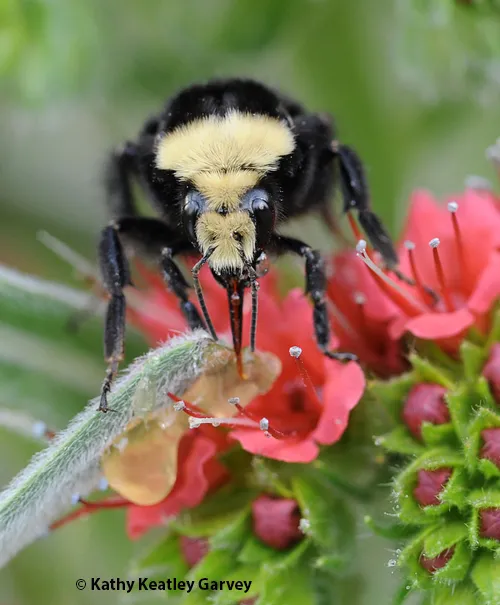Celebrate World Bee Today: Bee Inspired!

"Bee Inspired!"
Today is World Bee Day and the theme, "Bee Inspired by Nature to Nourish Us All," should not only inspire us, but motivate us.
The buzzworthy event, launched by the United Nations in 2017, calls attention to the fact that more than 75 percent of the world's crops, including fruits, vegetables, nuts and seeds, are dependent on pollinators.
Yet habitat loss, pollution, climate change and "unsustainable agricultural practices" threaten food production.
When we think of pollinators, we usually think of honey bees, Apis mellifera, but there are more than 20,000 bee species throughout the world. And more than 200,000 animals species, including butterflies, bats and beetles, are pollinators, too.
"Bees and other pollinators also serve as indicators of environmental health, providing insights into ecosystems and the climate," the World Bee Day website points out. "Protecting pollinators also enhances biodiversity and critical ecosystem services, such as soil fertility, pest control, and air and water regulation."
More locally and statewide, the UC Davis-based California Master Beekeeper Program (CAMBP), founded and directed by Elina Niño, professor of Cooperative Extension, Apiculture (and a bee scientist with the UC Davis Department of Entomology and Nematology), is asking its members today "to teach someone about the four P's that threaten honey bees."
- Pests, such as varroa mites
- Pathogens, such as viruses
- Pesticides and their harmful residues
- Poor nutrition, including the lack of diverse forage
You may not want to become a beekeeper--joining CAMBP's train-the-trainer scientific-based program and advancing from apprentice to journey to the master level--but you can take a course to become a bee ambassador. That's actually CAMBP's first level! In a way, since the United Nations founded World Bee Day, you could become a "U.N. bee ambassador" by way of CAMBP, right? And inspire and motivate others to protect and celebrate the bees.
Check out the classes on the CAMBP website at https://cambp.ucdavis.edu/.
